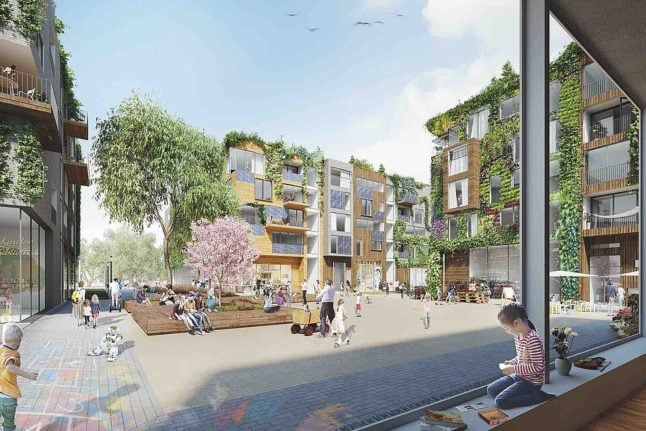“From 2021, the largest timber construction district in the world, with over 5,000 apartments, will be built in the eastern area of the former Tegel airport,” said Berlin’s housing senator Sebastian Scheel (Linke).
The new district will be called the the Schumacher Quarter.
Scheel pledged that the new housing will be both climate neutral and affordable.
“From research and development, to material production and construction, everything will takes place in one place. This could help urban timber construction to achieve a breakthrough,” said Scheel.
He added that the aim was to make the timber housing for cities 20 to 25 percent cheaper to construct than a traditional build with reinforced concrete.

Photo: DPA
The project will be overseen by the Tegel Projekt GmbH, a company entirely owned by the city of Berlin.
The city will be hoping that the project goes more smoothly than the last state-run airport build. The disastrous construction of Berlin’s new Berlin Brandenburg (BER) international airport took a decade longer than planned.
READ ALSO: Berlin Brandenburg (BER) International Airport to finally open after nine-year delay
There is still some work to do on the site before construction can begin.
“Contaminated areas and military explosives need to be removed before it starts. The first ground work is already underway,” said Scheel. Construction on the building is scheduled to begin in 2024.
“According to current planning, the education campus and the first residential buildings in the Schumacher Quarter will be ready in 2027, the last ones in the early 2030s”, he said.
The new quarter is expected to provide homes for 10,000 residents of the capital.
Another residential build on the site of the old airport is set to bring 4,000 more apartments into a city which is plagued by a shortage of living space.
The Tegel Projekt GmbH also wants to bring together founders, students, investors, industrialists and scientists in a new urban space.
The Urban Tech Republic will be home to up to 1,000 different companies, and there are also plans to turn the current Terminal A into a university campus.
READ MORE: What's next for Berlin's Tegel airport?



 Please whitelist us to continue reading.
Please whitelist us to continue reading.
After the Fluster-cluck at the new Airport,how long do they project it will take to build said apartment complex? 15 years?